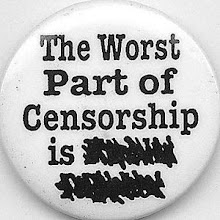The origin of the term "multiculturalism" may be the stuff of academic legend.
In preparing for my presentation on multiculturalism, I wanted to find out when the term was first used. Many websites cited a book for language arts teachers, which cited a book review published in 1941. The reviewer stated that the book he (or she) had read brought up the strengths of a "multicultural" society, where citizens respect each other no matter what their ethnicity, religion, etc.. I thought that was pretty good stuff, and proceeded to go on a wild goose chase.
You see, none of the sources that I read identified the title of the book or the book reviewer. Not only that, but three of the five sources had incorrectly identified the source of the book review. Three sources said that the review had come from a 1941 issue of The New York Herald. Unfortunately, that publication no longer existed in 1941--since 1923 it had been The New York Herald Tribune after a merger.
Once I had identified the correct source of the book review, I had to locate it. Just my luck, The New York Herald Tribune is not indexed electronically in any library. You actually have to contact a public library in Texas that has a morgue of back issues. Even the public libraries in New York do not have copies!
I didn't have time to call the library in Texas, plus I did not want to pay for the review (if it even existed) to be photocopied and snail mailed to my office. I was getting pretty steamed; why should I pay for the sloppy research of others?
A sip of coffee shook a library-related memory from a dusty corner of my brain. Way back in ninth grade, long before electronic databases and the Internet, our school librarian taught us about the Reader's Guide to Periodical Literature. The Reader's Guide is an index to articles and book reviews published in newspapers and magazines from 1900 to today. It is published in heavy green volumes that wait patiently for librarians to remember them. If the Reader's Guide didn't have a listing for this book review, I was sunk.
If there was anyone who would know where the Reader's Guide was located, it would be the Reference Department. I went downstairs and asked Professor Hill, veteran Reference librarian, to show me the Reader's Guide. "Bless your heart," he sighed, and we dashed to the Ready Reference section where the entire Reader's Guide collection stood at attention like soldiers. I was on a mission now--find that review!
I will remind you that I did not know the title of the review, nor did I know the title of the book being reviewed, the name of the reviewer, nor the month and day of publication. Based on the quote from the review, I deduced that the book in question could have been about war, aggression, peace...the Reader's Guide is indexed by subject, so I had to search for the review that way. I did not find it, but I found a whole lot of articles from the New York Times which would have fit the bill perfectly.
In any case, I put in an ILL request for the language arts book that started this whole mess. The book is called America in So Many Words: Words That Have Shaped America by David K. Barnhart and Allan A. Metcalf (Houghton Mifflin, 1997). In this book, Barnhart and Metcalf provide etymologies for distinctly American words that became part of global discourse on social and political issues, but they did not provide works cited for their entries. For the serious researcher, this leads to a dead end and banging one's head on a desk.
As academics, we must provide a paper trail for our research. If we do not, history becomes stuff of legend that is easy to misquote yet nearly impossible to prove. If I learned anything about multiculturalism this semester, that would be the big moral lesson for the week.
Metric - Victim Of Luck
1 day ago

No comments:
Post a Comment